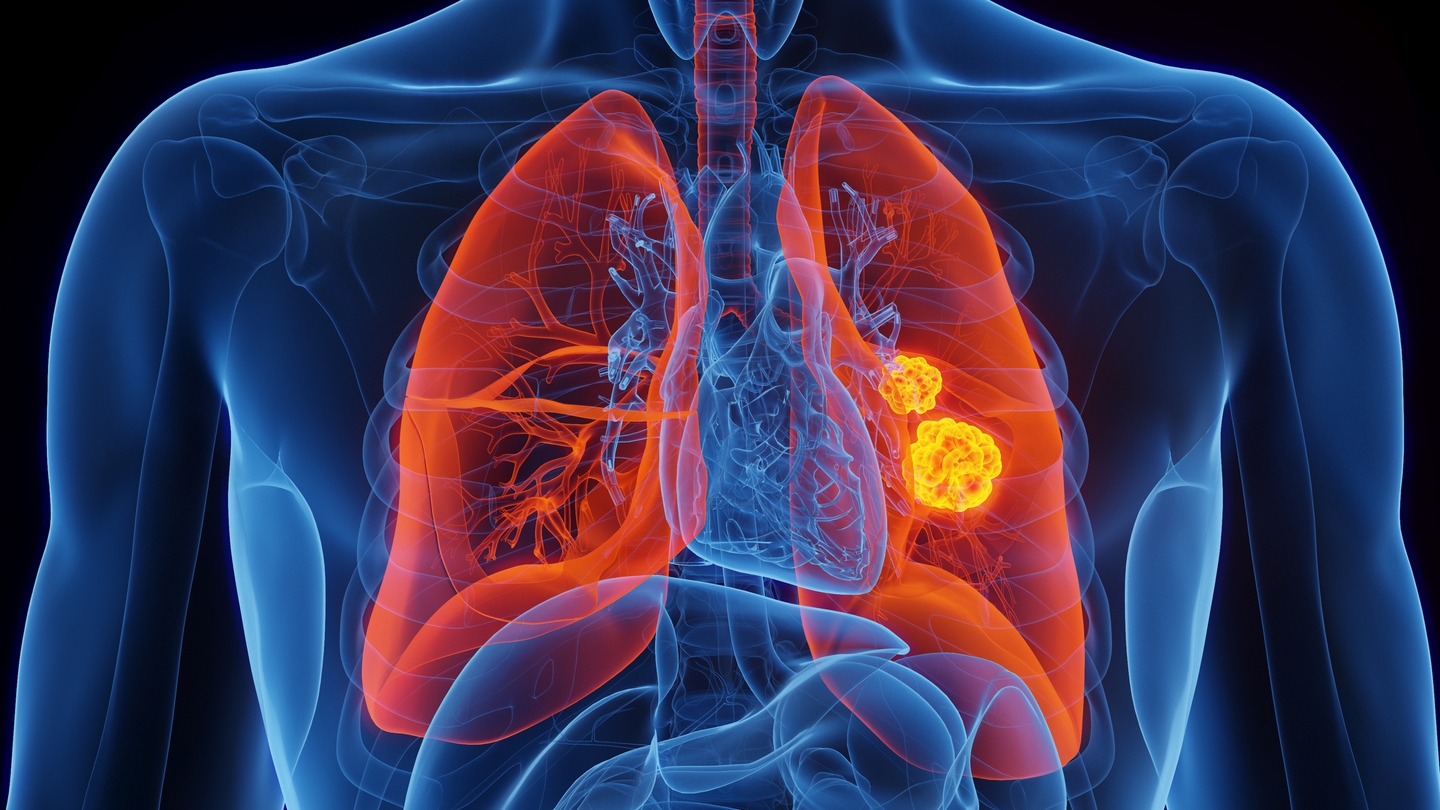Doctors are reminding everyone that lung cancer doesn’t only affect smokers—it can strike anyone, and knowing the symptoms could save lives.
Doctors Explain Lung Cancer Symptoms And Stress It's Not 'Just For Smokers'
With Lung Cancer Awareness Month underway, doctors are shining a light on the devastating disease and encouraging people to look out for the early signs that are often ignored. Awareness, they say, is key to early detection and better chances of survival.
According to the American Cancer Society, lung cancer remains the leading cause of cancer deaths in the United States, with an estimated 124,730 people expected to lose their lives to it in 2025. The statistics are a stark reminder of how serious and widespread the illness still is.
Doctors emphasize that recognizing the condition early can make all the difference. Common symptoms can include a persistent cough that won’t go away, shortness of breath, unexplained fatigue, or even chest discomfort—all of which can easily be mistaken for something less serious at first.
However, experts warn that misconceptions about what causes lung cancer often lead people to ignore these warning signs. Many still assume it only affects smokers, which can delay diagnosis for others at risk.
Medical professionals are now urging everyone to take potential symptoms seriously. They stress that lung cancer doesn’t discriminate—it can affect non-smokers too. Environmental factors and genetic predispositions can play a major role in its development.
People who have never smoked are still vulnerable due to exposure to air pollution, secondhand smoke, and other harmful substances. This means anyone can be at risk, even if they live a healthy lifestyle or avoid cigarettes entirely.

Dr. Anadi Pachaury, Associate Director and Unit Head of Surgical Oncology at Max Super Speciality Hospital, told the Economic Times that many patients overlook symptoms during colder months, thinking they’re dealing with a simple cold or chest infection.
He advised keeping a close eye on any cough that lingers for weeks, as well as other signs such as a hoarse voice, chest pain, breathlessness, or ongoing tiredness that doesn’t seem to have a cause.
Dr. Arun Kumar Goel also highlighted that a cough lasting more than three weeks should raise concern. He explained that other warning signs can include blood in the sputum, frequent chest infections, back or chest pain, and unexplained weight loss—all of which may point to something more serious.
The doctors added that these symptoms tend to be even more alarming in smokers and individuals who live in highly polluted environments. Still, they stressed that non-smokers aren’t immune to the disease since passive exposure to cigarette smoke can also trigger lung cancer over time.

They explained that cigarette smoke contains thousands of toxic compounds that can damage the DNA within lung cells, eventually leading to cancerous mutations. Even low levels of exposure can increase long-term risk.
Those who smoke regularly or have done so for many years are at the highest risk, but experts say that the danger rises regardless of how much someone smokes. The only real way to protect the lungs is to stop entirely.
"The most powerful step to prevent lung cancer is to quit smoking completely—there's no safe limit," the pair said, according to the report by TOI.
For people who don’t smoke, doctors recommend taking steps to limit exposure to polluted air. Using clean cooking fuel, installing air purifiers at home, and keeping living spaces well-ventilated can all make a difference.
When outdoors, especially during high-pollution days, wearing protective masks can help reduce inhalation of harmful particles. Even small precautions can help protect the lungs over time.
Doctors also emphasize that maintaining a balanced diet and exercising regularly can strengthen the lungs. Staying active helps improve breathing capacity and overall lung function, while good nutrition supports cell repair and immunity.
Dr. Pachaury suggested including plenty of green vegetables, fresh fruits, and nuts in daily meals, as they are rich in antioxidants that help protect the body from cellular damage. He also advised avoiding processed foods and limiting alcohol intake to promote overall health.
Meanwhile, Dr. Goel added that turmeric can be a helpful addition to the diet due to its natural anti-inflammatory properties. He further recommended dedicating around 30 to 40 minutes a day to moderate exercise, which not only boosts lung strength but also improves circulation and overall well-being.

